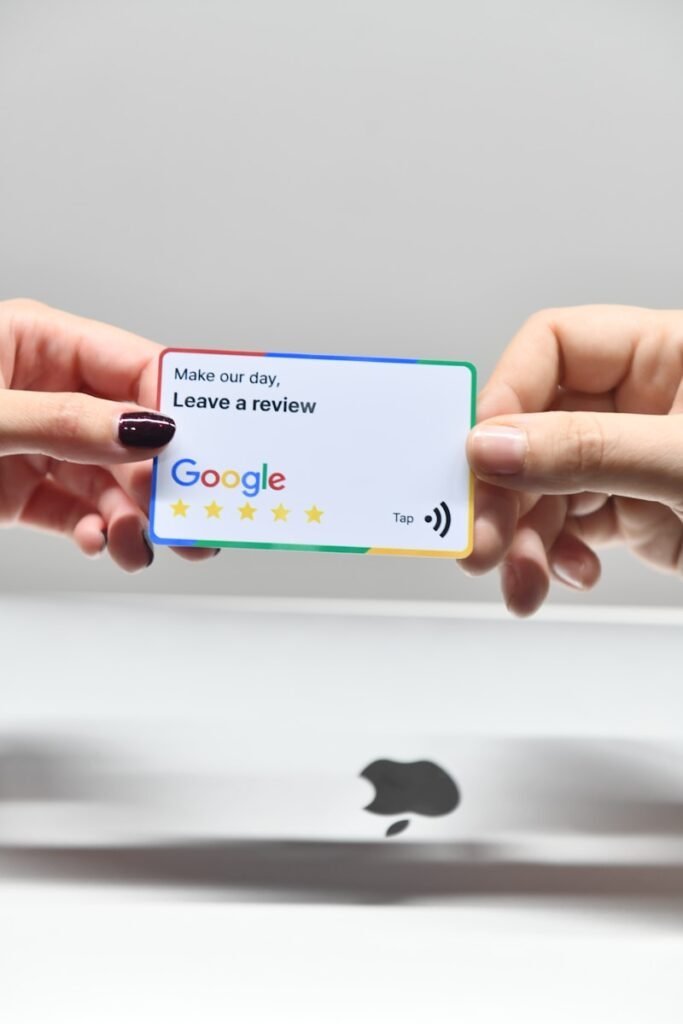In today’s digital age, a strong online presence is crucial for lawyers looking to attract new clients. One of the most powerful tools at your disposal is your Google Business Profile (formerly known as Google My Business). This free platform allows you to manage how your law firm appears in Google Search and Maps, making it easier for potential clients to find and connect with you. In this blog post, the experts at Houston Law Firm SEO discuss effective strategies for lawyers to optimize their Google Business Profiles and improve their local search visibility.
Key Takeaways:
- Ensure all basic information is accurate and complete
- Leverage custom features like Services and Products listings
- Create a custom landing page optimized for local SEO
- Enhance visual content with high-quality photos and videos
- Actively manage reviews and utilize Google Posts
- Set up individual profiles for attorneys within your firm
The Importance of Google Business Profiles for Lawyers
Google Business Profiles play a crucial role in local SEO for law firms. They appear prominently in local search results and Google Maps, often being the first point of contact between potential clients and your firm. A well-optimized profile can significantly increase your visibility, credibility, and the likelihood of attracting new clients.
“Your Google Business Profile is essentially your firm’s digital storefront,” say the experts at Houston Law Firm SEO. “It’s often the first impression potential clients have of your practice, so it’s crucial to make it as informative, engaging, and professional as possible.”
Optimizing Your Profile Information
The foundation of a strong Google Business Profile is accurate and comprehensive information. Here’s how to optimize your profile’s basic information:

1. Verify your profile if you haven’t already done so
2. Ensure your firm name, address, and phone number (NAP) are consistent with your website and other online listings
3. Choose the most relevant primary category (e.g., “Personal Injury Attorney“) and add secondary categories to cover all your practice areas
4. Set accurate business hours, including any special hours for holidays or events
5. Add your website URL and other relevant links (e.g., appointment booking page)
Write a keyword-optimized business description that highlights your expertise, unique value proposition, and target practice areas. This description should be concise yet informative, giving potential clients a clear understanding of your services and why they should choose your firm.
Leveraging Custom Features
Google Business Profiles offer several custom features that lawyers can use to enhance their listings:
Services and Products Listings:
1. List your main practice areas as Services (e.g., “Car Accident Claims,” “Divorce Representation”)
2. Include detailed, keyword-rich descriptions for each Service
3. Add pricing information if applicable to improve transparency
Creating a Custom Landing Page:

Developing a custom Google Business Profile landing page can significantly improve your local SEO:
1. Design a page specifically optimized for local SEO and your target keywords
2. Include more in-depth content about your services, team, and expertise than a typical homepage
3. Add client testimonials, case results, and other trust signals
4. Ensure the page loads quickly and is mobile-friendly
5. Link directly to this optimized page from your Google Business Profile
By leveraging these custom features, you can provide more detailed information to potential clients and improve your chances of appearing in relevant local searches.
Enhancing Visual Content
Visual content plays a crucial role in making your Google Business Profile more engaging and informative. Here’s how to optimize your visual content:
1. Upload high-quality photos of your office exterior and interior
2. Add professional headshots of your attorneys and team members
3. Include images of your firm participating in community events or receiving awards
4. Create and upload videos showcasing your expertise or client testimonials
5. Use your firm’s logo as the profile image for brand recognition
Remember, high-quality visuals not only make your profile more attractive but also help potential clients feel more connected to your firm before they even contact you.
Encouraging and Managing Reviews

Reviews are a critical component of your Google Business Profile, influencing both your search rankings and potential clients’ decisions. Here’s how to effectively manage your reviews:
1. Actively solicit reviews from satisfied clients
2. Make it easy for clients to leave reviews by providing direct links
3. Respond promptly and professionally to all reviews, both positive and negative
4. Address concerns raised in negative reviews constructively and offer to take the conversation offline if necessary
5. Showcase positive reviews on your website and other marketing materials
Remember, how you handle reviews can significantly impact potential clients’ perceptions of your firm.
Maximizing Review Opportunities Throughout the Legal Process
While many legal cases can take months or even years to resolve, law firms don’t need to wait until case completion to gather valuable reviews. By identifying multiple touchpoints throughout the legal process, you can create a steady stream of reviews that showcase different aspects of your firm’s expertise and client service. Here are some strategies to maximize your review opportunities:
1. Case Intake Process Reviews
- After the initial consultation or case intake, ask clients to review their experience with your firm’s onboarding process.
- Focus on aspects like responsiveness, clarity of communication, and the overall professionalism of your team.
- Example prompt: “We’d appreciate your feedback on our initial consultation process. Your review can help other potential clients feel confident in reaching out to us.”
2. Milestone Reviews
- Identify key milestones in your cases (e.g., filing of initial paperwork, completion of discovery) and request reviews at these points.
- These reviews can highlight your firm’s efficiency, communication, and progress updates.
- Example prompt: “As we’ve reached this important stage in your case, we’d love to hear your thoughts on our handling of the process so far.”
3. Character and Service Reviews
- Even if the case outcome is pending, clients can comment on the character of their attorney and the quality of service they’ve received.
- Encourage reviews that focus on attributes like trustworthiness, empathy, and accessibility.
- Example prompt: “While your case is ongoing, we’d appreciate your feedback on your experience working with our team so far.”
4. Peer Reviews from Legal Professionals
- Reach out to other attorneys you’ve worked with on cases, such as co-counsel or opposing counsel, for professional reviews.
- These reviews can speak to your firm’s expertise, ethics, and professionalism.
- Example prompt: “As a fellow legal professional, your insight into our firm’s work would be invaluable. Would you consider leaving a review about your experience collaborating with us?”
5. Process-Specific Reviews
- Break down your services into specific processes (e.g., document preparation, negotiation, court representation) and ask for reviews on these individual aspects.
- This approach allows you to gather more focused feedback and highlight different strengths of your firm.
- Example prompt: “We’d like to know how we did in preparing your legal documents. Your review can help us continue to excel in this crucial area.”
6. Client Education and Support Reviews
- If you provide educational resources, workshops, or exceptional support to clients, ask for reviews specifically about these services.
- These reviews can showcase your firm’s commitment to client empowerment and support.
- Example prompt: “Did you find our legal education resources helpful? We’d appreciate your review on how this information supported you during your case.”
7. Technology and Communication Reviews
- If you use specific tools or platforms to enhance client communication and case management, ask for reviews about these technological aspects.
- This can highlight your firm’s modernity and efficiency.
- Example prompt: “We strive to make communication seamless through our client portal. We’d love your feedback on how this tool has impacted your experience with our firm.”
8. Post-Resolution Follow-Up Reviews
- Even after a case is closed, it’s not too late to ask for a review. Follow up with clients a few weeks after resolution to gather their overall thoughts on the experience.
- These comprehensive reviews can provide valuable insights into the entire client journey.
- Example prompt: “Now that your case has been resolved, we’d greatly appreciate your overall feedback on your experience with our firm.”
Remember, when soliciting reviews at any stage, always adhere to legal ethics guidelines in your jurisdiction. Be clear that reviews are voluntary and that the client’s case handling will not be affected by their decision to leave a review or by the content of their review.
By implementing these strategies, you can create a more diverse and comprehensive review profile that accurately represents the various strengths of your law firm, even when individual cases may take considerable time to conclude.
Utilizing Google Posts

Google Posts allow you to share timely updates directly on your Business Profile and search results. Here’s how lawyers can effectively use this feature:
1. Share recent blog posts or articles demonstrating your legal expertise
2. Announce upcoming events, such as free legal clinics or webinars
3. Highlight recent case victories or settlements (within ethical guidelines)
4. Offer special promotions or free consultations
5. Provide updates on changes in laws or regulations relevant to your practice areas
Aim to post at least once a week to keep your profile active and engaging.
Creating Individual Attorney Profiles
For law firms with multiple attorneys, creating individual Google Business Profiles for each lawyer can be beneficial:
1. Set up separate profiles for each attorney, linked to the main firm profile
2. Optimize attorney profiles with their specific areas of expertise and achievements
3. Encourage reviews specific to each attorney’s services
4. Use individual profiles to highlight personal accomplishments and community involvement
This strategy can help improve the overall visibility of your firm and allow potential clients to connect with specific attorneys based on their needs and area of law.
Monitoring and Updating Your Profile
Maintaining an effective Google Business Profile requires ongoing attention:
1. Regularly check your profile for any changes or updates made by Google
2. Keep your information current, especially if your firm moves or changes contact details
3. Monitor your profile insights to understand how users are interacting with your listing
4. Continuously add new photos, posts, and updates to keep your profile fresh and engaging
5. Stay informed about new features Google introduces for Business Profiles and implement them when relevant
By consistently monitoring and updating your profile, you ensure that potential clients always have access to the most current and accurate information about your firm.
Call Local Houston Law Firm SEO Experts
Optimizing your Google Business Profile is a crucial step in improving your law firm’s online visibility and attracting more potential clients. However, it requires time, expertise, and ongoing effort to do it effectively. At Houston Law Firm SEO, we specialize in helping law firms maximize their online presence, including optimizing their Google Business Profiles for maximum impact.
Our team of experts understands the unique challenges of legal marketing and can develop a customized strategy to help your firm stand out in local search results. Don’t let your competitors outshine you online. Contact Houston Law Firm SEO today for a free consultation and take the first step towards improving your local search visibility and growing your practice in and around Houston.
Frequently Asked Questions About Improving Lawyers’ Google Business Profiles
While some changes can have immediate effects, it typically takes a few weeks to a couple of months to see significant improvements in visibility and engagement.
Google generally prefers one profile per physical location. Instead of creating multiple profiles, use categories and services to highlight different practice areas within a single profile.
It’s best to check your profile weekly for any changes or updates needed. Aim to add new posts or photos at least once a week to keep your profile active and engaging.
In most jurisdictions, it’s ethical to ask clients for reviews as long as you don’t offer incentives or pressure them. Always check your local bar association’s rules regarding client testimonials and reviews.
Respond professionally and constructively to negative reviews, addressing the concern without discussing confidential details. Offer to take the conversation offline to resolve any issues. This is your opportunity to write a helpful, professional response that is for others to read and not targeted directly toward the negative reviewer.
Glossary of SEO Terms
1. NAP: Name, Address, Phone Number – critical information that should be consistent across all online listings.
2. Local Pack: The group of three local business results that appear at the top of Google’s search results for queries with local intent.
3. Google Posts: A feature of Google Business Profiles that allows businesses to share updates, offers, and events directly on their profile and search results.
4. Rich Results: Search results with extra visual or interactive features, such as star ratings or image thumbnails.
5. Local SEO: The process of optimizing a business’s online presence to attract more customers from relevant local searches.
